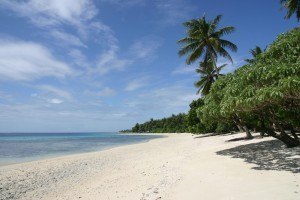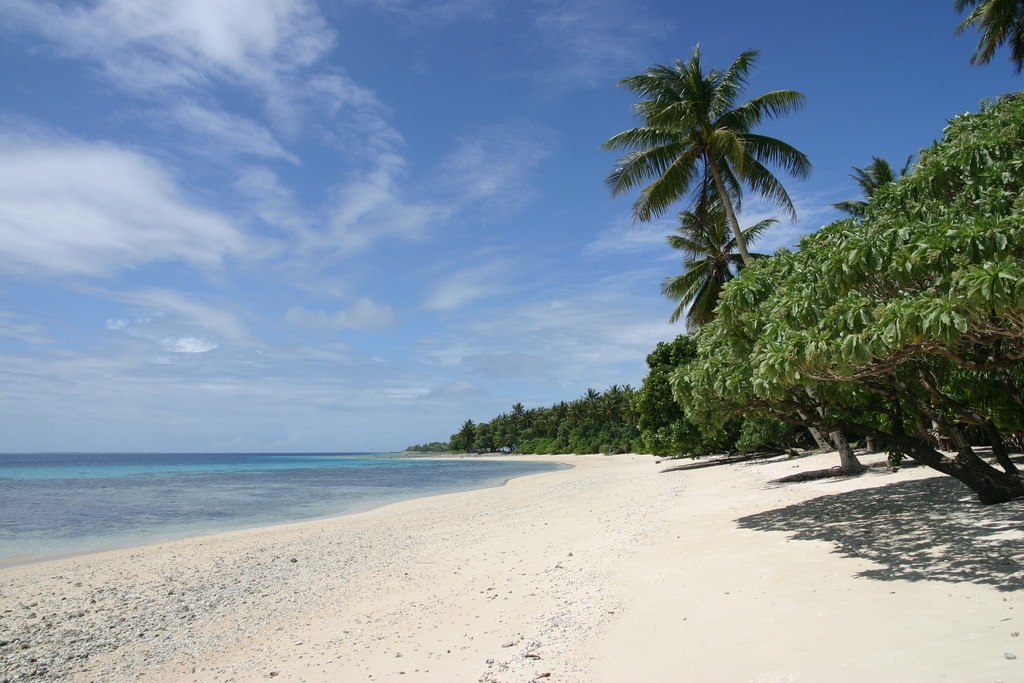Do the concerns of 70,000 people outweigh the interests of 7 billion?

Yesterday the Washington Post published an opinion piece by Phillip Muller, the foreign minister of the Marshall Islands. It was titled Pacific islands’ deadly threat from climate change, and includes this sentence:
The only answer is urgent global action, a Marshall Plan for a new low-carbon global economy.
The Marshall Islands are a nation of 70,000 people scattered over dozens of islands. This is a country scarce in natural resources. A bit of income is earned from fishing and harvesting coconuts. But less than 12% of its land is classified as “arable,” potable water is in short supply, and the main source of funds is the United States. This comes in two forms – compensation for post World War II-era nuclear testing, and rent for a military base.
As the World Factbook explains:
US assistance and lease payments for the use of Kwajalein Atoll as a US military base are the mainstay of this small island country. The Marshall Islands received roughly $1 billion in aid from the US during 1986-2001 under the original Compact of Free Association (Compact). In 2002 and 2003, the US and the Marshall Islands renegotiated the Compact’s financial package for a 20-year period, from 2004 to 2024. Under the amended Compact, the Marshall Islands will receive roughly $1.5 billion in direct US assistance. Agricultural production, primarily subsistence, is concentrated on small farms; the most important commercial crops are coconuts and breadfruit. Industry is limited to handicrafts, tuna processing, and copra. Tourism holds some potential. The islands and atolls have few natural resources, and imports exceed exports.
In other words, the Marshall Islands has no economy worth talking about. It doesn’t stand on its own two feet today – and is unlikely to do so anytime soon. It is admittedly a place of great natural beauty, but so is the Sahara Desert.
According to Muller, his country is a “paradise” at risk from “rising tides [that] come closer every day.” To save that paradise, he thinks there’s only one answer: The entire rest of the world should change how we live and work. The entire rest of the world should transform our own, currently functioning economies into low-carbon ones.
For the sake of a grand total of 70,000 people.
In 2010, the Asian Development Bank announced that 800 million souls had been lifted out of poverty in recent years due to fossil-fuel-powered economic growth. Do the 70,000 residents of the Marshall Islands have a right to obstruct the continuation of that growth in places such as China, India, Indonesia, Malaysia, the Phillippines, and Thailand?
There are lots of possible responses to what may or may not happen to the Marshall Islands as a result of climate change. But just as it would make no sense for the entire world to stop growing and consuming nuts because a minority of people are deathly allergic to them, expecting millions of struggling Indian families to forgo electric lights and sanitation facilities for the sake of the Marshall Island’s 70,000 residents is preposterous.
As Roger Pielke Jr. has pointed out:
The dirty secret of climate policy is that it works against the interests of poor people around the world who want to become rich like you and me.
The foreign minister of the Marshall Islands wants more of those policies.






